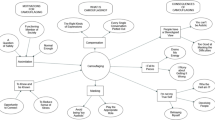Abstract
Despite the findings that persons with mental retardation are several times more likely to experience mental health disorders than are persons of normal intelligence, relatively little is known about the nature of these disorders and related social and adaptive deficits. This situation is especially true for persons with severe and profound impairment who experience psychotic disorders. The purpose of this research was to examine the adaptive and social behavior of individuals with severe and profound mental retardation (MR) who are diagnosed with a psychotic disorder. Scores on measures of adaptive and social behavior for these individuals were compared to those of 2 other groups, both of whom had severe or profound MR, and who experienced mental health conditions commonly confused with psychotic disorders (e.g., autism/PDD, nondiagnostic behavior problems). Individuals in the psychotic disorders group displayed significantly higher levels of some social and many adaptive skills than did individuals in both control groups, with the most striking differences appearing between the psychotic disorders and autism/PDD groups. Results underscore the need to consider social and adaptive variables during the diagnostic and treatment planning process.
Similar content being viewed by others
References
Bellack, A. S. (1983). Recurrent problems in the behavioral assessment of social skills. Behav. Res. Ther. 21: 29–41.
Bellack, A. S. (1986). Schizophrenia: Behavior therapy's forgotten child. Behav. Ther. 17: 199–214.
Duncan, D. Matson, J. L., Bamburg, J. W., Cherry, K. E., and Buckley, T. (1999). The relationship of self-injurious behavior and aggression to social skills in persons with severe and profound learning disabilities. Res. Dev. Disabil. 20: 441–448.
Jacobson, J. W. (1982). Problem behavior and psychiatric impairment in a developmentally disabled population. Appl. Res. Men. Retard. 3: 121–139.
LeBlanc, L. A., Matson, J. L., Cherry, K. E., and Bamburg, J. W. (1999). An examination of the convergent validity of the Matson Evaluation of Social Skills for Individuals with Severe Retardation (MESSIER). Br. J. Dev. Disabil. 45: 85–91.
Marchetti, A. G., and Campbell, V. A. (1990). Social Skills. In Matson, J. L. (ed.), Handbook of Behavior Modification With the Mentally Retarded, 2nd edn., Plenum, New York pp. 333–350.
Matson, J. L. (1995). Manual for the Matson Evaluation of Social Skills for Individuals With Severe Retardation, Scientific Publishers, Baton Rouge, LA.
Matson, J. L., Bamburg, J. W., Mayville, E. A., Pinkston, J., Bielecki, J., Kuhn, D., Smalls, Y., and Logan, J. R. (2000). Psychopharmacology and mental retardation: A 10 year review (1990–1999). Res. Dev. Disabil. 21: 263–296.
Matson, J. L., Carlisle, C. B., and Bamburg, J. W. (1998). The convergent validity of the Matson Evaluation of Social Skills in Persons with Severe Retardation (MESSIER). Res. Dev. Disabil. 19: 493–500.
Matson, J. L. and Hammer, D. (1996). Assessment of social functioning. In Jacobson, J. W., and Mulick, J. A. (Eds.), Manual of Diagnosis and Professional Practice in Mental Retardation, American Psychological Association, Washington, DC.
Matson, J. L., LeBlanc, L. A., Weinheimer, B., and Cherry, K. E. (1999). Reliability of the Matson Evaluation of Social Skills for Individuals with Severe Retardation (MESSIER). Behav. Modif. 23: 647–661.
Mueser, K. T., and Bellack, A. S. (1998). Social skills and social functioning. In Muesser, K. T., and Tarrier, N. (Eds.), Handbook of social functioning in schizophrenia. Allyn and Bacon, Boston.
Nihira, K., Price-Williams, D., and White, J. F. (1988). Social competence and maladaptive behavior of people with dual diagnosis. J. Multihandicapped Pers. 1: 185–199.
Paclawskyj, T. R., Rush, K. S., Matson, J. L., and Cherry, K. E. (1999). Factor structure of the Matson Evaluation of Social Skills for Individuals with Severe Retardation (MESSIER). Br. J. Clin. Psychol. 38: 289–294.
Siperstein, G. N. (1992). Social competence: An important construct in learning disabilities. Am. J. Men. Retard. 96: iii-iv.
Sparrow, S. S., Balla, D. A., and Cicchetti, D. V. (1984). Vineland Adaptive Behavior Scales—Revised, American Guidance Service, Circle Pines, MN.
Spreat, S., Roszkowski, M., Isett, R., and Alderfer, R. (1980). Emotional disturbance in mental retardation: An investigation of dual diagnosis. J. Autism Dev. Disorders 10: 361–367.
Author information
Authors and Affiliations
Rights and permissions
About this article
Cite this article
Matson, J.L., Mayville, E.A., Lott, J.D. et al. A Comparison of Social and Adaptive Functioning in Persons with Psychosis, Autism, and Severe or Profound Mental Retardation. Journal of Developmental and Physical Disabilities 15, 57–65 (2003). https://doi.org/10.1023/A:1021404304361
Issue Date:
DOI: https://doi.org/10.1023/A:1021404304361




